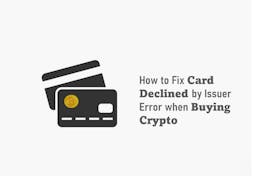
The existence of cryptocurrencies today has given investors a new set of investment opportunities different from traditional investment vehicles.
In turn, investors can now have a wide range of diversified invested crypto portfolios just as they do stocks and shares in the traditional exchange market.
While this may seem great at first, certain risks such as losing private keys and crypto thefts have become a common occurrence.

Key Takeaways
• Retrieving stolen crypto is possible under the right circumstances but it would require a lot of work, and some luck.
• All cryptocurrencies can be traced irrespective of the blockchain they were built on.
• It is always important to take action at the right moment in the event of a crypto theft to reduce the chances of the crypto criminal getting away with your crypto.
• Today, there are blockchain experts referred to as bounty hunters who help customers with their skills to try and recover stolen funds although their fees are quite expensive.
SEE ALSO: What is a Blockchain Trilemma?
SEE ALSO: Blockchain 3.0-All You Need To Know
SEE ALSO: 11 Best NFT Blockchains for Simple NFT Projects
Thankfully, efforts are being made by crypto investigators using blockchain forensics to curb the activities of crypto thieves.
In this article, we shall be taking a look at what blockchain forensics is about and how it can further improve the crypto space.
Blockchain Forensics: An In-depth Look
Blockchain forensics is a new technological concept that arose as a result of frequent crypto crimes perpetuated in the crypto space.
Blockchain forensics exist to frustrate the efforts of cybercriminals who are bound on using the crypto space for nefarious purposes.
With blockchain forensics, investigators can gather different kinds of evidence left on the blockchain digital leader.
This is made possible because the blockchain digital leader can flag down suspicious crypto activities to blockchain forensics technology.
Blockchain forensics can get detailed information about a particular cryptocurrency ranging from its history to origin, ownership, transaction details, and other types of information.
This is so that all transactional activities regarding the particular cryptocurrency can be traced and any suspicious activity snuffed out.
When the evidence has been gathered, it can be used against cybercriminals in a court of law which if favorable can lead to the cybercriminal facing jail time or paying a particular amount in damages as the case may be.
Who is a Crypto Investigator?

A crypto investigator is an individual with a certain skill set tilted towards investigating crypto crimes such as stolen cryptocurrencies, wallet thefts, crypto crimes, and scams.
An example of a crypto investigator would be Digitpol.
Digitpol is a crypto investigation unit located in Europe that is responsible for investigating the above-listed activities while using investigative techniques to undercover complex transactions that take place on the blockchain.
Digitpol investigates crypto theft of wallets, tracing of crypto transactions, rogue Initial Coin Offerings (ICOs), rogue altcoins, rogue trading platforms, and scam crypto offerings on the blockchain.
Digitpol can monitor and trace transactions from Bitcoin, Ethereum, Ripple, Bitcoin Cash, Bitcoin ABC, Cardano, Bitcoin, SV, Litecoin, EOS, Tezos, Stellar, Monero, Dash, Zcash, Dogecoin, ALT, and new currencies.
Also in some cases when funds are transferred off the blockchain, Digitpol can undercover the identity of users of cryptocurrencies.
The role of blockchain forensics in crypto crimes investigation
It should come as no surprise that blockchain forensics is a relatively new concept in the blockchain space.
However, blockchain forensics has been able to go a long way in curtailing the rate of crypto fraud and other crypto crimes.
Below are some of the roles in blockchain forensics have played in stopping these crypto crimes. They include:
De-anonymization
Contrary to popular belief, blockchain technology does not make users anonymous as some startup firms have proved that this is false.
These firms have gone ahead to develop certain tools centered around forensics that would aid crypto investigators to easily trace and identify these criminals who try to be anonymous while using blockchain to carry out their unwholesome activities.
Financial Investigation
The application of blockchain forensics in the financial sector offers enforcers the technical ability to follow digital money trails, thereby, leading to the successful investigation and prosecution of various crypto crimes, the most recent being the Twitter bitcoin scam of the 15th of July 2020.
Although no one knows for sure the methods used by the crypto investigators, wired.com lets us understand that the backward trailing of bitcoin payments, as well as wallet and IP addresses, led investigators to two of the alleged perpetrators, within two weeks.
This is a pointer to the fact that blockchain forensics constitutes an immensely useful tool in the investigation process of cybercrimes.
Digital Asset Recovery
Hacking incidents, crypto Ponzi schemes, crypto exchanges, and thefts, are ways in which cybercriminals defraud victims of their cryptocurrencies.
With the application of blockchain forensics, these digital assets can be recovered in no distant time.
As cryptocurrencies continue to be the financial weapons of choice for cybercriminals, blockchain forensics will continually position itself as the preferred tool for cryptocurrency regulators and law enforcement agents who wish to effect a reduction in crypto crimes.
Is it possible to retrieve stolen crypto?

At present, retrieving your crypto can be quite an upheaval task and if your crypto was stolen by a highly-skilled crypto criminal, the chances that you might recover them in the future are quite slim.
Nonetheless, rather than doing nothing, below are some of the steps you can take to retrieve your cryptocurrency:
Contact the police
Now contacting the police is not a sure-fire way that your crypto will be recovered but it does provide an investigation for them to look into.
Oftentimes, this is where the crypto investigator comes in.
With enough information, the crypto investigator might be able to find some clues as to how the cryptocurrency was stolen.
Inform the crypto exchange
Once you realize that your crypto has been stolen, it is always best to take action immediately and report to the exchange where the theft took place.
This might just be your saving grace if the exchange begins t0 track the transaction immediately before any drastic action such as moving the crypto to another exchange is taken by the criminal.
Call your bank
If your traditional bank was somewhat involved in the fraudulent transaction maybe for fees and the like, it is always advisable to call them to let them know the situation of things.
With this, the bank can put a hold on your account, stopping the criminal from inflicting more damage to your finances.
Follow the transaction
It is said that all blockchains leave a money trail which means you can follow the transaction to determine the address to which the crypto was sent.
By monitoring that address, you can find out when transactions are being made especially if the crypto is about to be moved somewhere else.
When you have found out, quickly report to the exchange who would take it up from there.
On most exchanges, KYC procedures are usually done before any transaction can be undertaken. This is why reporting to the exchange is a good idea and why reporting to the police as well is a step in the right direction.
You can follow the trail of your funds through blockchain explorers like Blockcypher. The site would provide you with the user’s bitcoin address.
The bitcoin address is then checked here to find its owner.
Hire a bounty hunter
As surprising as this may sound, you can hire a bounty hunter as they can be found on bitcoin bounty websites.
These bounty hunters have experienced blockchain experts that help to investigate and recover your stolen crypto.
However, they are by no means a guarantee that your crypto will be recovered and they charge high amounts for their services as well.
Which crypto can be traced?
All cryptocurrencies including private cryptocurrencies such as Monero, and DASH are traceable to a certain degree.
This is why we say that crypto transactions performed on the blockchain by users are not anonymous rather they are just very difficult to trace.
That is why you would need to depend on a crypto investigator or a blockchain expert and their services can only yield something worthy of note depending on the skill and experience of the crypto criminal.
Some crypto criminals are quite skilled to the extent that the chances of an investigator finding anything relevant are close to zero.
Frequently Asked Questions (FAQs)
Can I get my crypto back if I was scammed?
The chances of you getting your crypto back if you were scammed are not so high but you can boost those chances by doing the needful such as contacting the exchange where you were scammed, etc.
Can the police trace cryptocurrency?
Right now, the police can trace crypto through crypto investigators who are ready to trace your transactions through the exchange to see if they can find any relevant information.
Final Thoughts
Blockchain forensics is still a new phenomenon that is gradually gaining attention in the digital space.
With the advent, of crypto thefts and hacks, this topic has had to come up and certain crypto investigators have had to spring up to take up the challenge.
Probably in the future, a more defined way of putting an end permanently to this crypto menace would be done.
Read More




